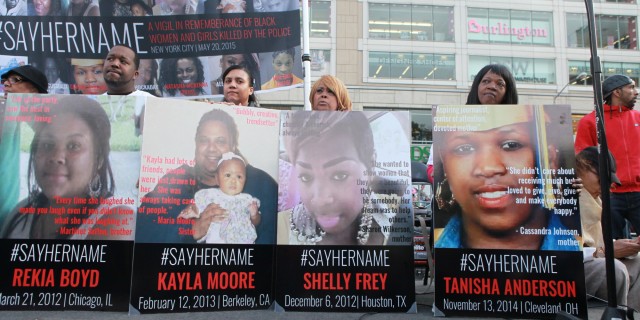“White Christians’ decisions to choose the comfort of their own race over the Christian ideals of brotherhood and oneness that our gospel so boldly preaches have undoubtedly weakened their witness to the African-American community.”
His convicting statement reflects the reality that, in racialized debate, people of color feel they cannot count on their white Christian sisters and brothers to have their back.
Too often in moments of racial controversy, the white Christian response to those hurt by such events has been either muted, late, or nonexistent, leaving the marginalized to wonder if our sermons about unity and diversity were just for show. True, some folks may take a stand, but often they act (and are perceived) as individuals, rather than as representatives of Christ and his Church. As a body of believers, we distance ourselves from controversy, and we fail to manifest Christ’s love in solidarity. At our worst, we add to the voices second-guessing the cries of racism.
Yet we know from scripture that we are to “learn to do good; seek justice, correct oppression,” and “to loose the chains of injustice and untie the cords of the yoke” (Isaiah 1:17, 58:6). If we are to be the Body of Christ, we have to understand that the reconciliation for which our souls long cannot come without the justice that our racial brokenness requires.
After all, isn’t that the miracle of Christ? That “we have now been justified by his blood” (Romans 5:9), as a gift from God “who reconciled us to himself through Christ and gave us the ministry of reconciliation” (2 Corinthians 5:18). In his death and resurrection, Jesus accomplished both perfect reconciliation and perfect justice, both of which are necessary for the redemption of a broken world.
Once we commit to educating ourselves and bearing with each other, we then must become active agents of change in our communities. We become the first to speak up against injustice and ignorance. We initiate partnerships, and support the efforts of racial reconciliation initiatives already in place. We show up, we participate, and we make our voices heard.
In his book Kingdom Come, Allen Wakabayashi asserts, “the world needs to see that our faith really does make a difference for life, especially as we deal with some of the most vexing social struggles, like race, gender, and class suppression.”
As we go through our daily lives, are we living the witness of Christ when it comes to racial justice and reconciliation?
Do we bear the same fruit as the rest of the world or are we different?
Do they know we are Christians?
*This post originally appeared on BTSF on March 5, 2012




